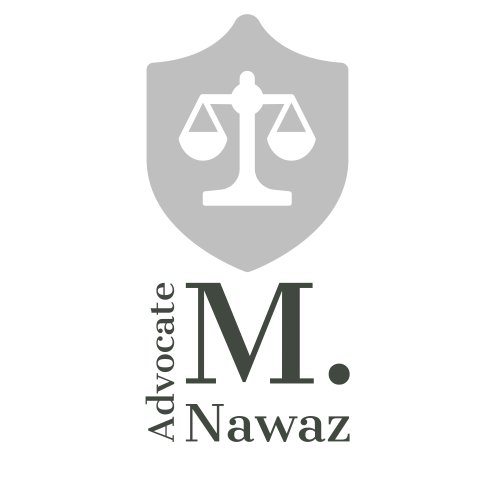Best Medical Malpractice Lawyers in Karachi
Share your needs with us, get contacted by law firms.
Free. Takes 2 min.
List of the best lawyers in Karachi, Pakistan
About Medical Malpractice Law in Karachi, Pakistan
Medical malpractice refers to the negligence or misconduct of healthcare professionals that leads to harm or injury to a patient. In Karachi, Pakistan, medical malpractice cases are governed by a set of laws and regulations to ensure healthcare providers are held accountable for their actions. If you or a loved one have been a victim of medical malpractice, it is important to understand your rights and the legal process involved.
Why You May Need a Lawyer
Seeking legal help in medical malpractice cases can be crucial in various situations, including:
- If you believe you have been a victim of medical negligence
- If you or your loved one has suffered an injury or harm due to medical treatment
- If you need assistance in gathering evidence, medical records, and expert opinions
- If you want to pursue legal action against a healthcare professional or institution
- If you need guidance in navigating the complex legal procedures and filing a lawsuit
Local Laws Overview
In Karachi, the legal framework regarding medical malpractice revolves around the Pakistan Medical and Dental Council (PMDC) and the Pakistan Medical and Dental Council (PMDC) Ordinance, 1962. These laws outline the professional conduct expected from healthcare practitioners and provide a basis for holding them accountable in case of negligence or malpractice.
The healthcare professionals in Karachi are required to adhere to the Standard of Practice rules and regulations defined by the PMDC. These regulations cover areas such as diagnosis, treatment procedures, informed consent, record-keeping, and patient confidentiality.
Frequently Asked Questions
Q: What qualifies as medical malpractice in Karachi, Pakistan?
A: Medical malpractice can include misdiagnosis, surgical errors, medication errors, birth injuries, anesthesia mistakes, failure to obtain informed consent, and any other act of negligence or misconduct by a healthcare professional that leads to harm or injury to a patient.
Q: How long do I have to file a medical malpractice case in Karachi?
A: The statutes of limitations for filing a medical malpractice case in Karachi is typically two years from the date the negligence occurred or from the discovery of the malpractice. It is important to consult a lawyer as soon as possible to understand the specific timeframe applicable to your case.
Q: What compensation can I seek in a medical malpractice lawsuit in Karachi?
A: Compensation in medical malpractice cases may include medical expenses, loss of income or earning capacity, pain and suffering, disability or disfigurement, emotional distress, and other damages directly resulting from the malpractice. The amount of compensation can vary depending on the severity of the harm caused.
Q: Do medical malpractice cases in Karachi always go to court?
A: No, not all medical malpractice cases go to court. Many cases are resolved through negotiations and settlements between the parties involved. However, if the parties are unable to reach a settlement, the case may proceed to court for a legal judgment.
Q: How can I prove medical malpractice in Karachi, Pakistan?
A: To prove medical malpractice, you generally need to establish four elements: the presence of a doctor-patient relationship, the healthcare provider's negligence or breach of duty, a direct link between the provider's negligence and the harm caused, and the resulting damages or injuries. Gathering medical records, expert opinions, and other evidence is crucial in proving your case.
Additional Resources
Here are some resources that can provide further assistance and information related to medical malpractice in Karachi, Pakistan:
- Pakistan Medical and Dental Council (PMDC) - official website: www.pmdc.org.pk
- Supreme Court of Pakistan - legal decisions and judgments: www.supremecourt.gov.pk
- Consumer Rights Commission of Pakistan - advocacy and support for consumer rights: www.crcp.org.pk
Next Steps
If you require legal assistance in a medical malpractice case in Karachi, Pakistan, here are the suggested next steps to take:
- Consult with a reputable lawyer specialized in medical malpractice.
- Gather all relevant medical records, documents, and evidence supporting your case.
- Share your situation and the details of your case with the lawyer to evaluate the merit of your claim.
- Discuss the options available to you, including negotiation, settlement, or pursuing a lawsuit.
- Follow the lawyer's guidance for the legal proceedings and provide all necessary cooperation and information.
Lawzana helps you find the best lawyers and law firms in Karachi through a curated and pre-screened list of qualified legal professionals. Our platform offers rankings and detailed profiles of attorneys and law firms, allowing you to compare based on practice areas, including Medical Malpractice, experience, and client feedback.
Each profile includes a description of the firm's areas of practice, client reviews, team members and partners, year of establishment, spoken languages, office locations, contact information, social media presence, and any published articles or resources. Most firms on our platform speak English and are experienced in both local and international legal matters.
Get a quote from top-rated law firms in Karachi, Pakistan — quickly, securely, and without unnecessary hassle.
Disclaimer:
The information provided on this page is for general informational purposes only and does not constitute legal advice. While we strive to ensure the accuracy and relevance of the content, legal information may change over time, and interpretations of the law can vary. You should always consult with a qualified legal professional for advice specific to your situation.
We disclaim all liability for actions taken or not taken based on the content of this page. If you believe any information is incorrect or outdated, please contact us, and we will review and update it where appropriate.














